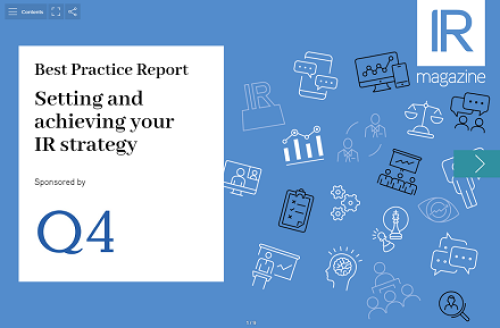Moscow Exchange reforms limit outflow of western funds
Four months ago Gazprom announced it was listing a GDR on the Singapore stock market, and considering Hong Kong as a next step, in an attempt to ‘broaden its investor base globally’ and ‘positively support the liquidity of Gazprom’s shares’. The firm, which also has a DR listed on the London Stock Exchange, had revealed earlier in April that it was actively looking east for new investors after western sanctions hit selected Russian companies and individuals following the political crisis in Ukraine.
A listing in Singapore was cited as a recent possibility for Sberbank, the country’s largest bank and one of the five Russian financial institutions that have been banned from raising capital in the European market. ‘We’re looking at being listed in an Asian market for debt instruments as well as potential capital instruments,’ the banking giant’s chairman German Gref told the Straits Times last September, qualifying Singapore as ‘the most friendly jurisdiction from every point of view.’
Asia is also on Moscow Exchange’s list of destinations for 2015, with a trip planned to Singapore and potentially to Hong Kong depending on ‘sufficient demand’, according to Sergey Klinkov, the bourse’s head of IR. Asia-based shareholders increased their position when the Central Bank of Russia sold its stake in Moscow Exchange last July, Klinkov notes, adding that Asian investors were ‘less sensitive to short-term volatility and more long-term-oriented, so we don’t observe significant trading activity on their side.’
At mining giant Norilsk Nickel, enthusiasm toward eastern regions is more lukewarm. Head of IR Vladimir Zhukov says listing in Asia ‒ where 2 percent of the company’s investors are located ‒ has indeed been considered but the idea has been put on the back burner in favor of a targeting plan in South Africa, the Middle East and Canada. ‘On the one hand, we believe Asia is something we can potentially expand on,’ Zhukov says. ‘But at the same time, having looked at the shareholder analysis of our peer group ‒ global diversified mining companies such as BHP Billiton, Anglo American and Rio Tinto ‒ it seems rather limited.’
The issues presented by both a potential listing in Hong Kong or Singapore and the B2B nature of the miner’s business are further reasons for procrastination. ‘We understand that international companies that have a chance of being relatively successful in terms of Asian listings are the so-called household names: companies that are recognizable brands for retail investors,’ Zhukov continues, citing the Brazilian firm Vale, whose IPO in Hong Kong resulted in ‘no liquidity and no trading volumes [even though] China is its single largest customer.’
He notes that, despite the sanctions, there has been an increasing amount of interest from outside the firm’s traditional ‘Russia or similarly dedicated investors’ over the past year. ‘Because we’re actually one of the highest dividend yield stocks in the mining universe, we’ve been on the radar of global investors ‒ global equity guys, global value guys ‒ and this is definitely outside our core investor base.’
‘It’s very interesting to see that the share of foreign investors in Russian equities grew from an average 40 percent in 2013 to 46 percent in November 2014 despite all the challenges facing the local market,’ echoes Klinkov. ‘The demand came mainly from continental European ‒ notably Scandinavian ‒ funds, which compensated outflows of US and UK-based money.’
Klinkov is keen to highlight the results of the reforms that have taken place over the last three years in Russia. The two local Moscow exchanges, MICEX and RTS, have merged into one entity, and a central securities depository has been created to allow transition to a ‘day plus two’ trading regime as well as the settlement of Russian bond and equity trades by the Euroclear and Clearstream clearing systems.
But new bond issues and IPOs are at a standstill in Moscow. Klinkov reveals that while the Moscow Exchange’s primary markets team was talking to ‘a number of potential issuers’ ready to move forward with a listing provided a ‘fair valuation’ could be achieved, he feels ‘the market is definitely not there yet. Elevated volatility, higher interest rates and overall uncertainty constrains new issuance both in equities and fixed income. Personally, I doubt we’ll see new placements unless the situation softens.’
Neither Norilsk’s management nor its board members are subject to any sanctions and this has surely helped to keep investors confident, but Zhukov reveals there has been an impact on credit availability. ‘Even though we probably have the highest credit rating among private corporates and are therefore in a better position than many other Russian companies, getting credit is actually becoming more difficult,’ he explains, adding that the firm had nevertheless secured ‘new debt as well as a successful debt rollover by an international bank’ at the end of last year. ‘But we are more of an exception than a rule,’ he concludes.










